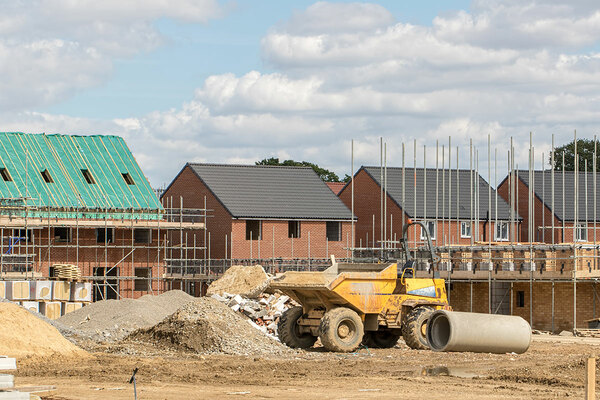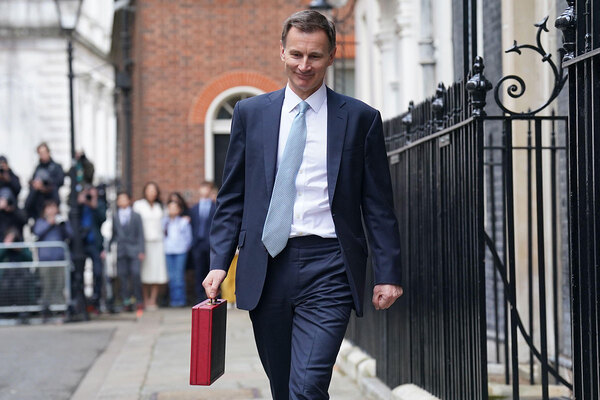You are viewing 1 of your 1 free articles
How to place housing in the driving seat
Housing offers quick and ready-made solutions for a government looking to create economic stimulus across the economy. We need to make sure we are well placed to respond, writes Nick Atkin
The coronavirus pandemic has changed the world, both permanently and profoundly. Even if countries can control the spread of COVID-19 in the coming months, there will be vast political, economic, social, technological, legal and environmental consequences that will last for decades.
There are various views about how the world might change. Clearly these are speculative, as no one knows what the future will look like. But we do know that this crisis will invariably prompt significant changes to how we all live and work.
The overriding message is that there will be no ‘back to normal’.
At times like this, flexibility and innovation are more important than ever. Tempting though it is to ‘batten down the hatches’ in anticipation of life resuming as before in a few months, this is not a path the housing sector can follow.
There will be a number of opportunities that will require an innovative and fresh approach as we all look to adjust to the new world that emerges.
The good news is that housing is one of the very few sectors in the UK that is crucial in every part of the economic cycle, regardless of whether this is a boom time or a recession. It is the tenures and products that change.
Ultimately, there was a housing crisis immediately prior to the onset of the pandemic. This hasn’t gone away and is arguably now even worse, as highlighted by Martin Hilditch in his recent comment piece.
We need to ensure we are well placed to respond to the opportunities that will inevitably arise.
“The good news is that housing is one of the very few sectors in the UK that is crucial in every part of the economic cycle, regardless of whether this is a boom time or a recession”
The government is looking for ways to create stimulus across the economy. Housing offers quick and ready-made solutions, with the experience from previous recessions in 2008 and the mid 1990s to draw upon. The Mortgage Rescue Scheme, Housing Market Package and direct purchases from developers have all previously been proven to work.
The Housing Market Package allowed social landlords to buy homes from house builders to be used for social rent. These schemes were used previously in 1992 – when 18,000 properties were purchased – and in 2008 following the financial crash. The programme also helped house builders to secure cash during a downturn in the housing market.
The Mortgage Rescue Scheme was set up to provide a last resort option for vulnerable households at risk of losing their homes through repossession. It allowed the homeowner to continue to live in their own home as a tenant or part-owner/part-tenant.
One key issue we need to factor in is that most of the key government officials, politicians and decision-makers were not around at the time of the last downturn. Consequently, we need to help them understand the positive contribution the housing sector can play in reducing the economic impact of coronavirus and the proven solutions that already exist.
Our offer to the government can bring together a combination of existing tools and funding streams into an overarching strategic plan. This needs to allow flexibility within existing programmes, coupled with a blend of national initiatives to give us the liquidity and capacity to deliver.
The offer can be summarised across five areas:
- Keeping people in their homes – through the use of a refreshed Mortgage Rescue Scheme that includes a shared ownership and future buy-back option.
- Keeping people off the streets – ensuring there is a smooth transition for the people who have been temporarily housed in hotels as they seek a permanent home.
- Keeping a supply of new homes flowing – working with developers to give them the confidence to continue to build, in the knowledge that there will be off-the-shelf purchases.
- Keeping the housing market moving – including the use of Housing Market Package options to stimulate the housing market, ensuring there isn’t a return to the spectre of negative equity or a loss of confidence, culminating in a slowdown of new homes being delivered.
- Keeping homes safe and healthy – lockdown has been difficult for anyone living in a home that is in a poor condition. This recent article by Nathaniel Barker makes the case for why a national programme to invest in tackling the poorest property conditions has real benefits that spread far wider than just the immediate household.
There are many competing voices and solutions being offered to the government, that is why we need to ensure we speak with one voice. At no point has this ever been as important as now.
Only with a clear, simple and unified message will our voice be heard, and we can then play our part in delivering the solutions to help get the country back on its feet.
Nick Atkin, chief executive, Yorkshire Housing











